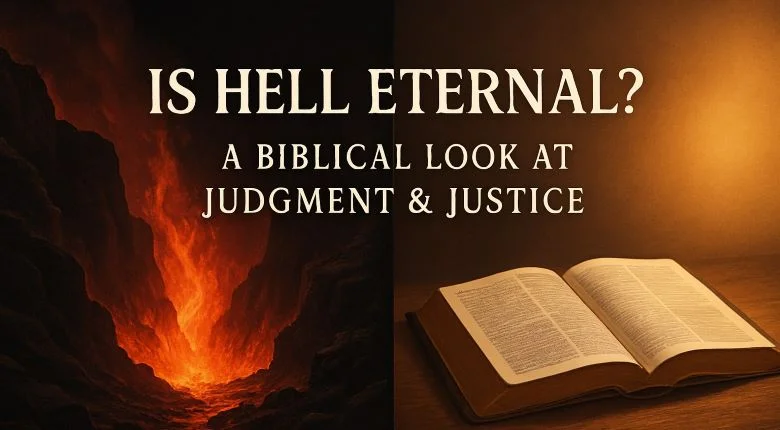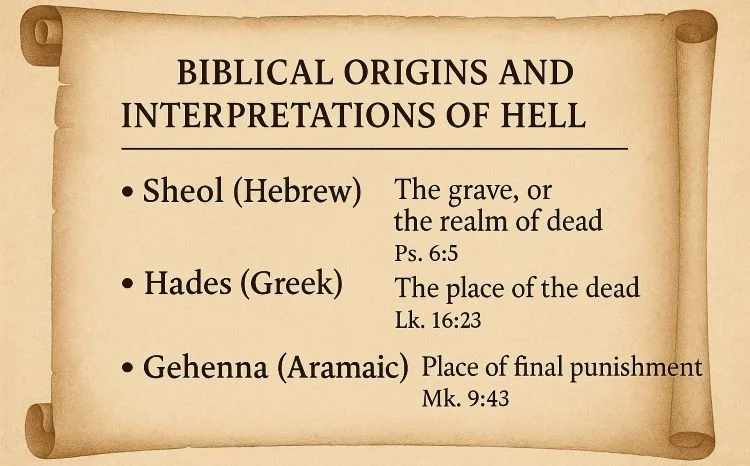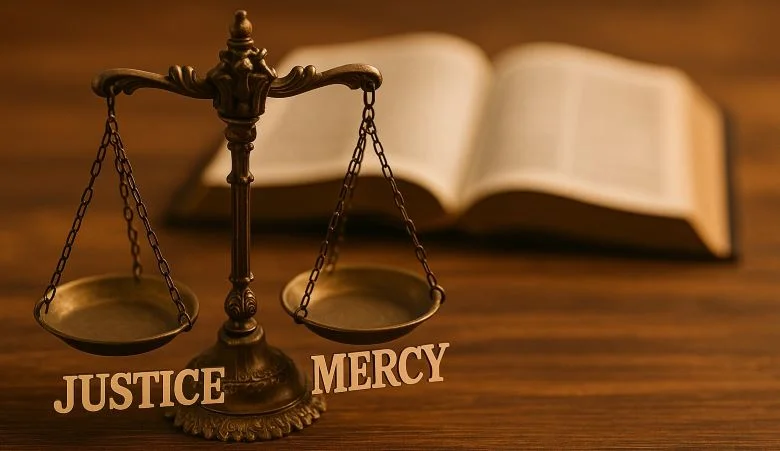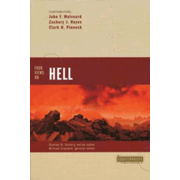
What happens after we die? For centuries, Christians have wrestled with the sobering reality of judgment and the concept of Hell. Is it eternal? Is it conscious? Is there hope for all to be saved?
This topic isn’t just theological—it’s personal. As believers, we long to understand God’s justice and mercy. But when we talk about Hell, opinions vary even among Bible-believing Christians.
Let’s take a biblical look at what Scripture actually says about Hell, judgment, and God’s justice. We’ll explore different views, their biblical foundations, and how we can respond with both truth and grace.
Understanding the Concept of Hell in Christianity
Before diving into different doctrines, we need to understand the biblical roots of Hell.
Biblical Origins and Interpretations of Hell

The Bible uses several terms to describe the afterlife and judgment:
- Sheol – Found in the Old Testament, this Hebrew word often refers to the grave or the realm of the dead (Psalm 6:5; Ecclesiastes 9:10).
- Hades – The Greek counterpart of Sheol, used in the New Testament (Luke 16:23; Acts 2:27).
- Gehenna – The term Jesus often used to describe a place of final judgment (Mark 9:43; Matthew 10:28). Gehenna was originally a valley outside Jerusalem associated with idol worship and burning refuse.
These terms have been interpreted differently over time, leading to various doctrines about Hell.
Historical Context and Evolution
Early Church Fathers had differing views. Some, like Augustine, supported the idea of eternal conscious torment. Others, like Origen, leaned toward universal salvation.
Throughout history, cultural and philosophical ideas also influenced Christian thinking about Hell—especially during the Middle Ages. But as always, Scripture must be our ultimate authority.
Eternal Conscious Torment: A Traditional Perspective
What Is Eternal Conscious Torment (ECT)?
ECT teaches that the wicked will suffer forever in conscious torment, separated from God.
It’s been the dominant view in much of Western Christianity, especially in Catholic and Reformed traditions.
Biblical Support for ECT
Several Scriptures are often cited in support of this view:
- Matthew 25:46 – “And these will go away into eternal punishment, but the righteous into eternal life.”
- Revelation 14:11 – “And the smoke of their torment goes up forever and ever…”
- Mark 9:48 – “Where their worm does not die and the fire is not quenched.”
These passages seem to indicate ongoing punishment, not a temporary one.
Critiques and Defenses
Critics of ECT argue that a loving God wouldn’t inflict eternal suffering.
Defenders respond that God’s justice demands it, and that the eternal nature of sin deserves eternal consequence. They also emphasize the weight of rejecting God’s grace.
Annihilationism: The View of Conditional Immortality

What Is Annihilationism?
Annihilationism teaches that after final judgment, the wicked will cease to exist. Immortality is conditional—only given to the redeemed.
The wicked will be judged, but their punishment is destruction, not eternal suffering.
Biblical Support for Annihilationism
Key verses supporting this view include:
- Matthew 10:28 – “Fear Him who can destroy both soul and body in hell.”
- Romans 6:23 – “For the wages of sin is death, but the free gift of God is eternal life…”
- 2 Thessalonians 1:9 – “They will suffer the punishment of eternal destruction…”
Here, the focus is on destruction, not ongoing torment.
Theological Arguments
Proponents argue that God’s justice can be final without eternal suffering.
Annihilation offers a view of justice that ends in nonexistence—no more rebellion, but no ongoing pain either. It aligns with God’s mercy while still affirming His holiness.
Universalism: The Hope for Universal Salvation
What Is Christian Universalism?
This view holds that all people will eventually be saved, either in this life or the next. Hell, in this framework, is temporary and purifying, not final.
Biblical Interpretations for Universalism
Universalists point to verses that speak of God’s desire to save all:
- 1 Timothy 2:4 – “God desires all people to be saved and to come to the knowledge of the truth.”
- Romans 5:18 – “…so one act of righteousness leads to justification and life for all men.”
- Philippians 2:10-11 – Every knee shall bow and every tongue confess that Jesus Christ is Lord.
They interpret these as pointing to an eventual reconciliation for all.
Critics and Advocates
Critics argue that universalism downplays sin and judgment.
Supporters respond that God’s love is ultimately victorious, and His mercy endures forever (Psalm 136). For them, Hell serves a restorative, not punitive, role.
The Interplay Between Judgment and Justice

So which view is right?
Faithful Christians disagree on this issue. And while we may not have all the answers, Scripture gives us some guiding principles.
Divine Justice: Punishment or Rehabilitation?
God is both just and merciful (Exodus 34:6-7).
- Is judgment about retribution or correction?
- Does eternal punishment align with God’s character?
These are deep questions worth wrestling with.
Cultural Influence and Human Interpretation
Let’s be honest—our views are often shaped by culture, tradition, and personal experience.
We must return to Scripture again and again, letting God’s Word shape our theology—not just what we’ve heard in sermons or books.
Living With Theological Tensions
While we seek truth, we must also walk in humility.
It’s okay to hold your convictions while still respecting others who interpret Scripture differently. Unity in the essentials. Grace in the rest.
Key Takeaway
Hell is real—and Scripture is clear that there is a final judgment. But how that judgment unfolds is debated among sincere, Bible-believing Christians. Whether you believe in eternal torment, annihilation, or hope for universal salvation, the most important truth is this:
Jesus came to save us from sin and death—and in Him, we find eternal life.
Let that truth drive us to worship, obedience, and compassion.
FAQs
Is Hell mentioned in the Old Testament?
Yes. The Hebrew word Sheol is used to refer to the realm of the dead, but it’s not always portrayed as a place of punishment. The concept of Hell develops more fully in the New Testament.
Did Jesus talk about Hell?
Absolutely. Jesus often spoke of Gehenna as a place of judgment (Matthew 5:22, Mark 9:43). He took sin seriously and warned people of the consequences.
Can Christians believe different views about Hell?
Yes. While Hell is a biblical doctrine, sincere Christians have held different interpretations—ECT, annihilationism, and universalism. The key is to stay rooted in Scripture and approach others with humility and grace.
Is belief in Hell essential to salvation?
Salvation comes through faith in Jesus Christ (Ephesians 2:8-9). Our understanding of Hell is important, but not the foundation of saving faith.
Final Thoughts: Seek Truth, Share Hope
Hell is a weighty topic, but it should stir our hearts—not just our intellect.
Let it remind us of the urgency of the Gospel. Let it deepen our awe for God’s justice and mercy. And let it move us to share the Good News of salvation in Christ.
If you’re wrestling with this topic, keep asking, keep praying, and keep studying God’s Word. You don’t have to figure it all out at once. Just keep your eyes on Jesus.
Ready to Go Deeper?
If you found this helpful, I invite you to explore more biblical teachings on topics like heaven, judgment, grace, and eternal life.
Let’s grow in faith—grounded in truth, guided by God’s Word.
Affiliate Disclaimer
This post contains affiliate links. If you click on one of the links and make a purchase, I may receive a small commission at no extra cost to you. I only recommend products I truly believe in and think will be beneficial to my readers. Thank you for supporting Biblical Christianity!
Four Views on Hell
Edited by William Crockett
This theological resource explores four Christian perspectives on hell—literal, metaphorical, annihilationist, and purgatorial. Features contributions from John Walvoord, Clark Pinnock, Zachary Hayes, and William Crockett. Great for personal study or small groups.

